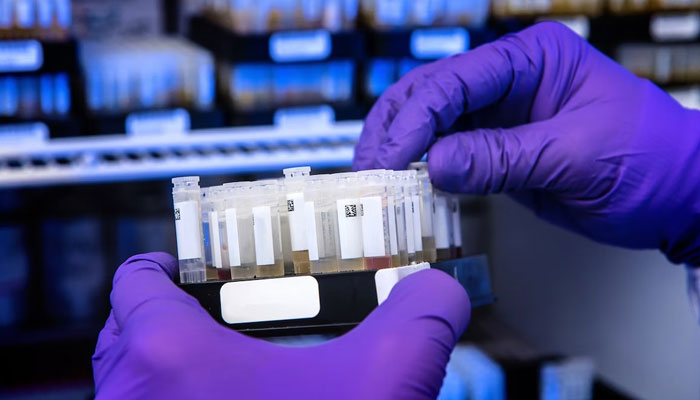Abaucin: Scientists use AI to discover new antibiotic against superbugs
Researchers say the use of AI proved to be more efficient and affordable than traditional, time-taking and costly methods of finding new antibiotics
Scientists have discovered an antibiotic, with the use of artificial intelligence (AI), that is able to kill deadly superbugs like Acinetobacter baumannii, which the World Health Organization (WHO) has termed as "the most dangerous drug-resistant bacteria."
In a new study published Thursday, in the journal Nature Chemical Biology, scientists came across a powerful antibiotic which they named "abaucin".
Although it needs further testing before it can be used, the WHO said that the bacteria have found "new ways to resist treatment" and "can pass along genetic material that allows other bacteria to become drug-resistant."
Researchers from McMaster University and the Massachusetts Institute of Technology who participated in the study used AI to narrow down thousands of chemicals to a few that could be tested in the laboratory, eventually coming across abaucin.
“This work validates the benefits of machine learning in the search for new antibiotics,” study lead author Jonathan Stokes said in a statement.
“Using AI, we can rapidly explore vast regions of chemical space, significantly increasing the chances of discovering fundamentally new antibacterial molecules.” he added.
According to previous studies, Acinetobacter baumannii is known to cause pneumonia, meningitis, and infect wounds – all of which may also lead to death.
It is found in hospital settings, where it "lingers on surfaces for long periods," and "the pathogen is able to pick up antibiotic-resistance genes from other bacteria," studies say.
Furthermore, Dr Stokes also said that AI has the potential to help scientists find new antibiotics at an affordable cost.
“AI methods afford us the opportunity to vastly increase the rate at which we discover new antibiotics, and we can do it at a reduced cost. This is an important avenue of exploration for new antibiotic drugs,” Dr Stokes said.
-
Sarah Ferguson’s dual cancer journey
-
Demi Moore was left with ‘intense’ illness after ‘The Substance’
-
How Michael J. Fox helped Harrison Ford with his Parkinson's monologue
-
‘Stranger Things’ star Gaten Matarazzo reveals how cleidocranial dysplasia affected his career
-
Peter Frampton details 'life-changing- battle with inclusion body myositis
-
How does Sia manage 'invisible pain' from Ehlers-Danlos syndrome
-
Halsey mentions how she 'gained control' over endometriosis condition
-
Shia LaBeouf sent to rehab for not taking ‘alcohol addiction seriously’












